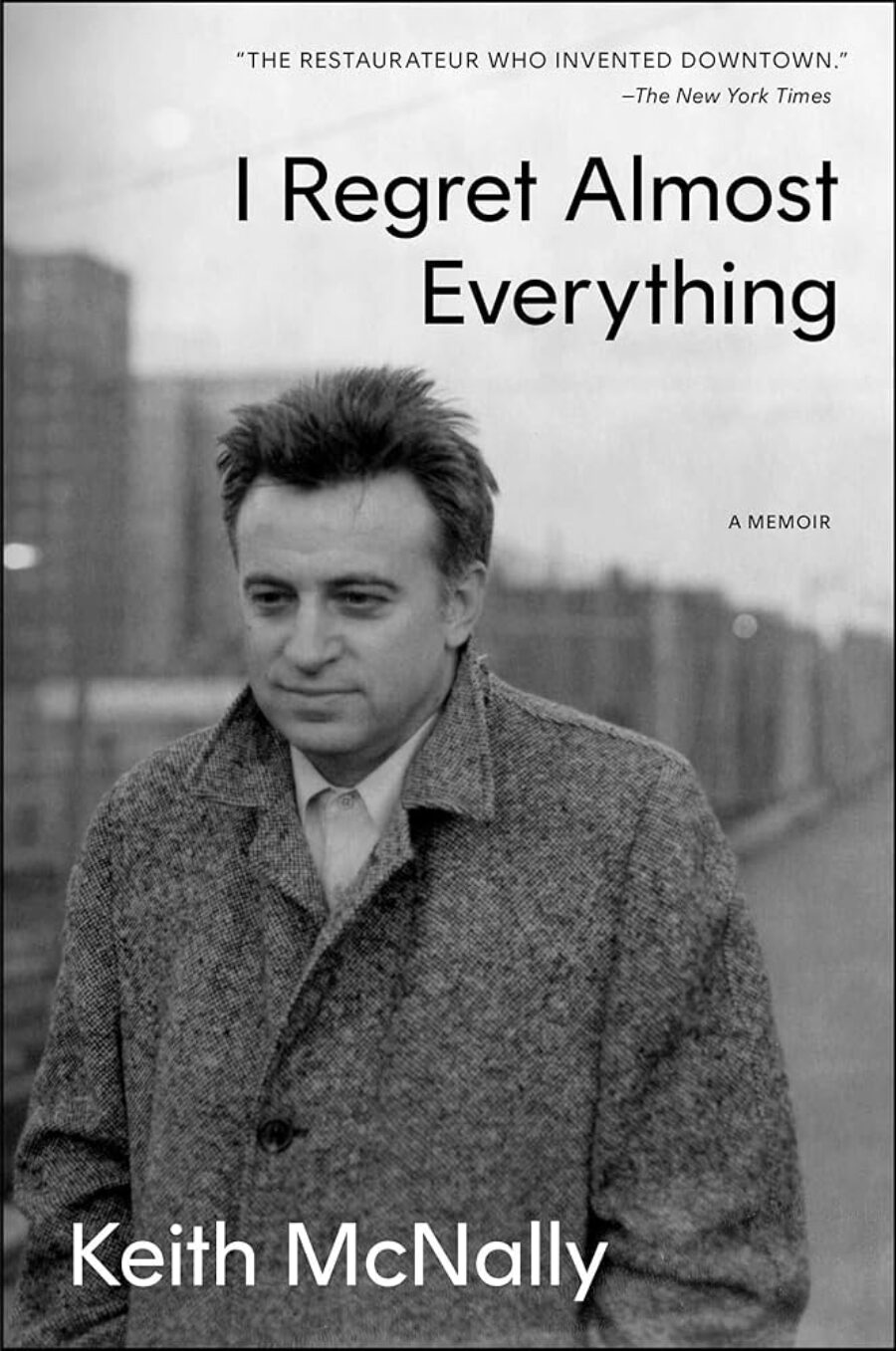In I Regret Almost Everything: A Memoir, legendary New York restaurateur Keith McNally delivers a fiercely honest, sharply observed account of a life lived at full volume, on the plate, on the page, and in the deeply human mess between. Known as the creative force behind iconic establishments like Balthazar, Minetta Tavern, and Pastis, McNally’s first memoir peels back the velvet curtain on a career that helped shape downtown Manhattan’s culinary scene, and the chaotic, at times tragic, personal life that ran alongside it.
Published by Gallery Books on May 6, 2025, the memoir marks a striking shift from the controlled ambiance of McNally’s restaurants to the raw, unvarnished terrain of personal narrative. The title sets the tone: regret is not only admitted, it is nearly embraced. With self-deprecating wit and unflinching candor, McNally recounts decades of professional triumphs punctuated by personal failures, flawed relationships, and a near-fatal stroke that forced him to confront mortality and redefine success.
From Working-Class London to NYC Nightlife
Born in London to working-class parents, McNally’s early years were shaped by instability, ambition, and an artistic impulse that would eventually steer him toward the stage and later, to restaurant design. After immigrating to New York in the 1970s, he quickly found himself immersed in the downtown arts and nightlife scenes. In 1980, he co-founded The Odeon in Tribeca, an instant hotspot that attracted artists, celebrities, and tastemakers, and helped usher in a new era of hip, downtown dining.
This set the stage for a string of successes, including Cafe Luxembourg, Lucky Strike, Pravda, and finally, Balthazar, the Soho brasserie that would become synonymous with New York cool. McNally’s gift wasn’t in the kitchen, he readily admits he never cooked professionally, but in atmosphere, storytelling, and world-building. His restaurants didn’t just serve food; they served mythologies, scenes, and moments of urban theatre.
Success at a Cost
Yet as the pages of I Regret Almost Everything unfold, McNally dismantles the illusion of his own control. The memoir is less about the glamorous trappings of hospitality than about the personal costs of constant reinvention. He reflects on two divorces, estranged relationships with some of his children, and his often-tumultuous management style. The tone alternates between biting humor and melancholic self-reckoning. He calls himself a benevolent dictator who built empires while burning bridges, particularly when it came to interpersonal dynamics both inside and outside the restaurants.
There are moments of levity, gossipy anecdotes, surreal celebrity encounters, and absurd service-night disasters, but they’re grounded by a persistent vulnerability. The book’s strength lies in McNally’s refusal to mythologize himself. He owns up to arrogance, mistakes, and profound loneliness, often circling back to a sense of emotional detachment that followed him through the years, even as his public acclaim grew.
The Stroke That Changed Everything
A major turning point arrives with McNally’s 2016 stroke, which left him partially paralyzed and struggling with speech. Suddenly sidelined from his empire, he was forced to reckon with the legacy he had built, and the fragments of the life left untouched by success. His description of the stroke and its aftermath is unsentimental but searing, revealing how physical limitation pushed him toward deeper emotional excavation. The recovery process, both medical and psychological, gives the memoir its heart. It is here that McNally’s voice becomes most intimate, as he charts a halting return to independence and a reevaluation of what matters.
Unfiltered and Unrepentant
True to its title, the memoir does not end with tidy redemption or epiphanic wisdom. McNally remains ambivalent about many of the choices he’s made, acknowledging both his achievements and their collateral damage. But this is not a wallow in regret, it is, paradoxically, an act of agency. By laying bare his contradictions and vulnerabilities, McNally reclaims a narrative often flattened by celebrity and media caricature.
There’s a stylistic roughness to the writing, as though transcribed straight from McNally’s journal entries or voice memos, giving the book a confessional immediacy. The prose veers from elegant to acerbic, often within a single paragraph. He is opinionated, grudge-holding, and at times petty, but also unexpectedly tender, especially when writing about his children or recalling the small joys of hospitality.
A Portrait of the Artist as a Restaurateur
I Regret Almost Everything is not a typical food memoir. Recipes are few; nostalgia is tempered with realism. What McNally offers instead is a psychological portrait of a complicated man whose influence on American dining is undeniable, but whose internal battles often eclipsed the accolades. In peeling back his public persona, he presents a refreshingly unsanitized view of ambition and aging.
For fans of Anthony Bourdain, Gabrielle Hamilton, or even Patti Smith’s literary voice, McNally’s memoir will feel like a welcome companion: messy, moody, and unmistakably alive. It is not a celebration of regret, but a chronicle of survival, one that lingers, like the best meals, long after the final course.









